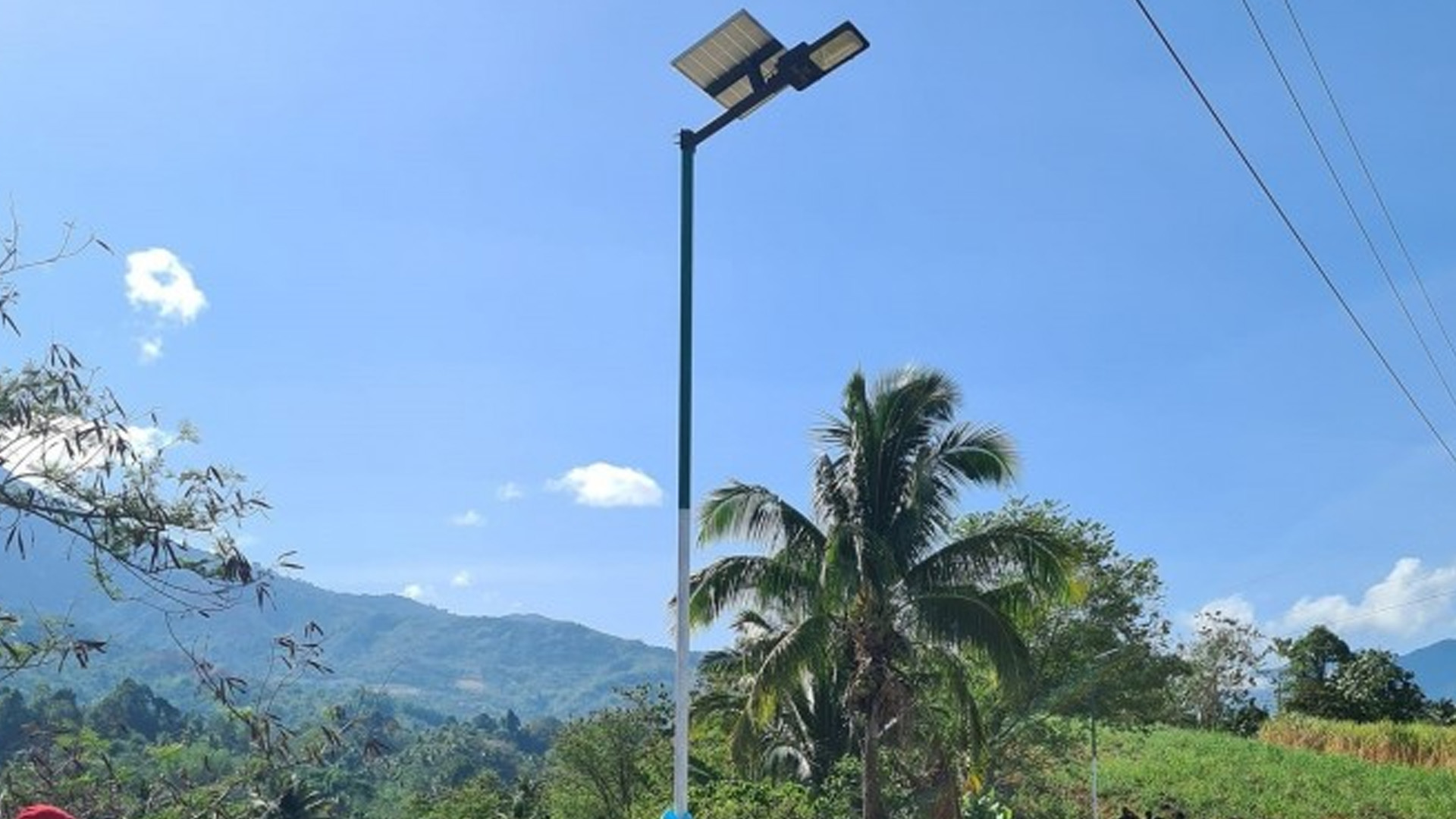Barangay Canlusong, the farthest village in E.B. Magalona, Negros Occidental, is harnessing solar power to light up its roads at night with assistance from the government’s PAyapa at MAsaganang PamayaNAn (PAMANA) Program funded by the Department of Social Welfare and Development (DSWD).
Some 53 solar-powered streetlights worth PHP1.22 million, installed along the pathway from the village proper to Purok Kawayan, were inaugurated and turned over to the residents on Wednesday.
Municipal Social Welfare and Development Office head Emy Lyn Hibionada, who witnessed the unveiling rites, said in a statement on Thursday that the “initiative not only illuminates the streets” of Barangay Canlusong but “also symbolizes the power of community-driven development.”
“It enhances the security and safety of residents at night and promotes sustainable and renewable energy (RE) solutions. It also supports the well-being and activities of the residents after dark,” she added.
The Northern Negros Electric Cooperative energized the former conflict-affected area under the rural electrification program, but solar has become an alternative source of power in areas still not reached by electricity.
The DSWD, through the Kapit-Bisig Laban sa Kahirapan-Comprehensive and Integrated Delivery of Social Services or Kalahi-CIDSS PAMANA Program, allocated PHP1.2 million for the community sub-project, with an additional cost of PHP21,000 shouldered by the municipal government.
The concerted efforts of the local government unit led by Mayor Marvin Malacon, the barangay council led by village chief Cherry Mae Marquilencia, personnel of DSWD Field Office-Western Visayas, and dedicated community volunteers made the project possible, Hibionada said.
PAMANA is the government’s framework for peace and development spearheaded by the Office of the Presidential Adviser on Peace, Reconciliation and Unity.
Its framework follows a converged strategy of resource allocation and utilization, and aims to sustain all ongoing governance and development initiatives in communities affected by past or ongoing conflicts.
Kalahi-CIDSS PAMANA works for the attainment of three major objectives: to reduce poverty, improve local governance, and empower communities by strengthening their capacities. (PNA)






